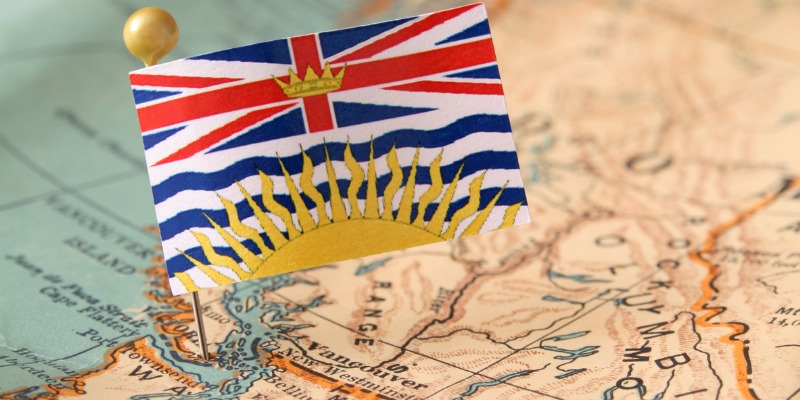British Columbians right to worry about secretive rushed approach to Aboriginal title

In 2019, British Columbia became the first jurisdiction in North America to embrace the UN Declaration on the Rights of Indigenous Peoples (UNDRIP). All 87 MLAs voted in favour of the measure. It was unclear at the time what it would mean for government policy, law and administrative practise in the future. But we’re beginning to see how B.C. policymakers plan to advance the goal of “reconciliation” with Aboriginal peoples following the adoption of UNDRIP several years ago.
The latest example is Bill 25, introduced to the B.C. legislative assembly on April 22, which will implement an agreement with the Haida Nation to recognize Aboriginal title over the entirety of Haida Gwaii, an archipelago off B.C.’s west coast. Aboriginal title is similar to “fee simple” ownership, the courts have said. It includes the right to possess the land and determine how it’s used.
Reconciliation is a key undertaking that must involve both Aboriginal and non-aboriginal British Columbians. In pursuing it, government must get it right the first time, as it’s extremely difficult to modify agreements reached between the Crown and First Nations after the fact. Reconciliation is best approached in a thoughtful, deliberate and well-planned way. The “how” of reconciliation is vitally important for the future of our province.
The absence of transparency (until a couple of weeks ago) about the process and outcome of the Haida negotiations means most British Columbians do not understand the implications of—nor the outstanding questions arising from—this particular and rather unusual arrangement. There’s no precedent for this anywhere in Canada. And the public generally has never been consulted and has little or no idea how the agreement will work. Premier David Eby has suggested the Haida accord may serve as a template for pursuing reconciliation throughout the province. This calls for a careful assessment of the agreement.
After the recent debacle over Land Act amendments, many British Columbians may not be mollified by the government’s “trust us” refrain. Aboriginal law experts have commented on the recognition of Aboriginal title over all of Haida Gwaii, including deeded land. Their comments vary and some are troubling.
Aboriginal title has never before been recognized over deeded (fee simple) land. In the Tsilhqot’in Nation v British Columbia case, where the court granted the Tsilhqot’in Aboriginal title over about 2.5 per cent of their traditional territory, deeded land was expressly excluded from the Aboriginal title area.
How can Aboriginal title and a deeded land interest co-exist, as is contemplated in the Haida agreement? Both Aboriginal title and deeded land ownership give the owner the right of exclusive possession and the right to determine the use of the land. It’s hard to get one’s head around two owners of the same parcel with competing rights.
There are many other legal questions. Can the province alone lawfully legislate about Aboriginal title without the federal government’s involvement? Does the grant of Aboriginal title over deeded land undermine the landowner’s rights—or even B.C.’s whole land title system? And how can contractual obligations about deeded land be enforced—especially if property owners are not signatories to the agreement?
And then there are practical implications. Premier Eby’s musing about the Haida agreement being a template suggests everyone in B.C. should ponder how this arrangement could affect them, if something similar is implemented where they live. This could be the North, the Lower Mainland, the Okanagan or anywhere.
In our respective jobs, we regularly encounter companies and investors in the resource sector who are wrestling with the growing uncertainty around access to Crown land and resources in B.C. This trend is driving businesses and investment away from the province. There’s a risk the Haida agreement—and other similar accords that may follow—will compound the problem. Potential investors/buyers are already exiting for points east and south, in the forest sector and increasingly in other land-based industries as well.
And, what about lenders? Without them, economic activity comes to a halt. Unless the questions about the implications of Aboriginal title over deeded land are convincingly addressed, lenders may become wary of lending to those operating on the land base, particularly if the Haida model of reconciliation is extended throughout the province. And will banks still lend for mortgages on Aboriginal title land?
Government “consultation” with representatives of business sectors affected by the quest for reconciliation has proven to be a one-way conversation where officials “explain” some aspect of what they’re doing, don’t answer questions, and tell those listening to wait for further announcements. This is not consultation.
None of this is a criticism of the Haida Nation, nor of the desire of First Nations to improve their communities by fostering economic development in their traditional territories.
The government would be wise to answer the questions raised by Bill 25, instead of dismissing those who are posing them. The province also needs to get serious about the difficult but necessary process of engaging in consultation and substantive dialogue with non-aboriginal British Columbians on the broader push for reconciliation. Because B.C. is out there alone, nearing a point of no return on its fast-moving reconciliation agenda, one should not underestimate the harm that mismanaging these issues may cause.
Authors:
Subscribe to the Fraser Institute
Get the latest news from the Fraser Institute on the latest research studies, news and events.

